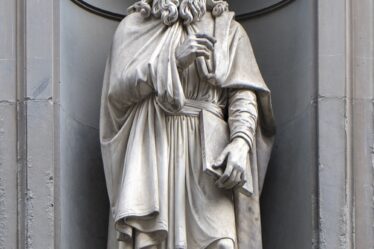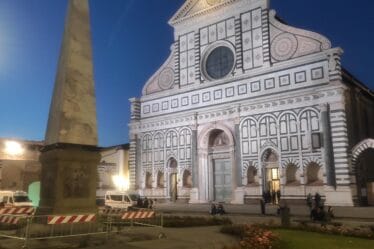

Subtitle: Exploring “Li Livres dou Tresor,” the First Vernacular Encyclopedia Bridging Politics, Ethics, and Education
Brunetto Latini’s Knowledge Legacy begins in Florence around 1220, where he was born into a family of notaries. Following family tradition, he too became a notary and rose to prominence as the chancellor of the Florentine Republic. However, in 1260, while on a diplomatic mission to Alfonso X of Castile, he received devastating news: the Guelphs had suffered a major defeat at the Battle of Montaperti. Consequently, Brunetto Latini went into exile in France, a turning point that would mark the beginning of his most important intellectual contribution—Li Livres dou Tresor.
What is Li Livres dou Tresor?
Li Livres dou Tresor, or The Book of the Treasure, is widely considered the first encyclopedia written in vernacular French, rather than Latin. This was a revolutionary move in the 13th century, as Latin was still the dominant language for scholarly and ecclesiastical works. By writing in the language of the people, Latini made knowledge accessible beyond the educated elite.
The Tresor was quickly translated into Italian, showing its immediate impact. The work is structured in a didactic format and is divided into three main books:
- Book I – Covers ethics, natural sciences, and theology, drawing from both classical and Christian sources.
- Book II – Focuses on politics, civic life, and governance, influenced by Aristotle’s Politics and Cicero.
- Book III – Offers a practical guide to rhetoric and eloquence, especially valuable for those in public office.
Through these volumes, Brunetto Latini’s Knowledge Legacy aimed to educate future leaders, civil servants, and ambitious citizens. His vision was not just intellectual, but deeply political and ethical—combining facts with moral instruction.
The Impact of the Tresor and Latini’s Return
After six years in exile, Latini returned to Florence in 1266. His political career resumed with vigor: in 1280, he played a role in the “Peace of the Cardinal Latino,” a key effort to reconcile Guelph and Ghibelline factions. Later, in 1287, he served as Priore, one of the city’s top magistrates.
Even after returning to political life, his writings continued to influence. Dante Alighieri himself praises Latini in Inferno (Canto XV), portraying him as a revered master of eloquence and moral guidance. This confirms Brunetto Latini’s Knowledge Legacy as deeply rooted in both literature and politics.
Latini also authored other important works:
- Il Tesoretto – An unfinished Italian poem recounting a philosophical journey.
- Il Favolello – A moral epistle to Rustico di Filippo.
- La Rettorica – A rhetorical guide adapted from Cicero’s De Inventione.
He passed away around 1294 in Florence, leaving behind a legacy that seamlessly connects politics, ethics, and education.
Explore More
For those interested in learning more about Brunetto Latini and his groundbreaking encyclopedia, here are some helpful resources:
- Encyclopedia Britannica on Brunetto Latini
- Digital Edition of Li Livres dou Tresor (Gallica)
- The Princeton Dante Project: Dante’s Inferno XV
In conclusion, Brunetto Latini’s Knowledge Legacy lives on through Li Livres dou Tresor, a pioneering work that democratized learning and laid the foundation for later humanist thought. Through his unique combination of civic duty, intellectual rigor, and ethical vision, Latini remains a central figure in the history of medieval European thought.



